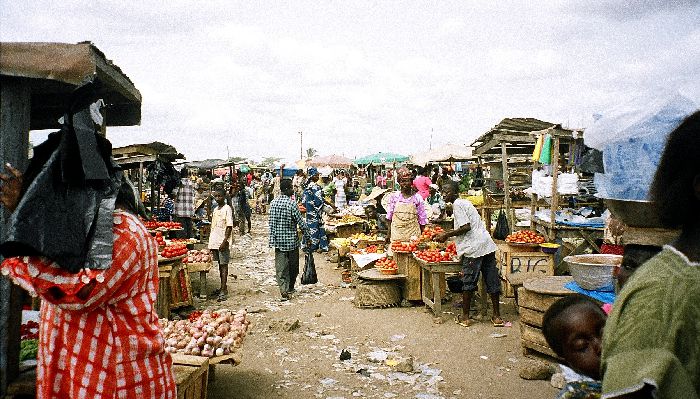
Let’s keep our markets clean
Many markets in the capital and others in parts of the country have become a place where highly contaminated foods are sold. This has become the case because of the large number of people who have, for lack of formal jobs, decided to take to trading. Due to the large numbers, every available space close to the market or within, becomes a spot for such traders to display their wares for sale.
Many patronise these contaminated foods because in many instances, they are sold for cheap and that becomes a major attraction for customers. This is the case because many are either ignorant of the fact that access to sufficient amounts of safe and nutritious food is key to sustaining life and promoting good health or, for the lack of proper income, some ignore the warning signs.
Unsafe food containing harmful bacteria, viruses, parasites or chemical substances causes more than 200 diseases – ranging from diarrhoea to cancers.
According to figures from the World Health Organisations (WHO), an estimated 600 million – almost one in 0 people in the world – fall ill after eating contaminated food and 420,000 die every year, resulting in the loss of 33 million healthy life years (DALYs). Children under five years of age carry 40 per cent of the foodborne disease burden, with 125,000 deaths every year.
Diarrhoeal diseases are the most common illnesses resulting from the consumption of contaminated food, causing 550 million people to fall ill and 230, 000 deaths every year.
Records from the Ghana Health Service, for instance, indicate that reported outpatient cases of foodborne diseases in Ghana are about 420,000 per year, with an annual death rate estimated at 65,000, costing the nation US$69 million annually.
In markets such as Kaneshie, Agbogbloshie and Kokomba, all in Accra, foodstuff and vegetables are sold close to choked gutters or drains or even on rubbish dumps.
The Daily Graphic finds the situation not only appalling but most unfortunate because of the serious health and financial implications it has on the people.
To us, this phenomenon should not be the case because there are managers in these markets. However, it seems to be the case that they are more interested in taking daily tolls from the market women and men who sell ‘dangerously’ to the public rather than ensuring that the practice is prevented.
There is no excuse why the managers of these markets cannot ensure sanity in the markets, so is the case of the various district and municipal assemblies which also sit aloof to watch the mess.
It has got to a time when we as citizens who serve as customers to these market women and men must take our own health into our hands and avoid buying from these ‘dirty’ women and men. What we should remember is that, much as what they sell in the filth may be cheaper, the consequence is more expensive and must be avoided.
It is the hope of the paper that should we ourselves become more responsible, we will not have to wait on the managers of the markets and the assemblies to ensure that foodstuffs sold in the markets are safe for human consumption.
We need to be mindful of the fact that foodborne diseases impede socio-economic development by straining healthcare systems and harming national economies, tourism and trade.
Considering the looming danger, we trust that the authorities will live up to expectation and stop making the collection of tolls their only preoccupation at the expense of the health of the citizenry.
